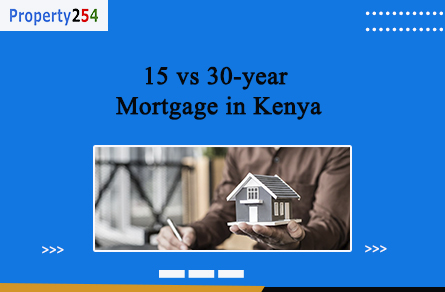Doing a title deed search in Kenya should be the first thing to consider when planning to buy land for residential or commercial use. A title deed is a document that outlines the details of a landowner.
There are two ways you can run a title deed search in Kenya. You can manually search in the Ministry of lands office. Second, you can search via the eCitizen app/website for the title details you need, thanks to the technology.
Remember that you must be vigilant before committing your funds to some piece of land. That’s why you need to do due diligence about the property you need to purchase.
But first, you need to understand the types of title deeds we have in Kenya.
- Freehold title deed. This title gives the land owner all the rights to own the land. There is no cap on the number of years to own the land.
- Leasehold title deed. With leasehold title, you can only own property for not more than 100 years.
- Sectional title deed. This title allows you to own a single unit in a big apartment.
What Do You Need To Run a Title Deed Search in Kenya
Of course, you need to be prepared before you head to the eCitizen app to run your search. If you dont have an eCitizien account, you need to have one, so open it here. Apart from title search, you can still get other valuable government services from where you are.
The following is what you need to do an online land title search in Kenya:
- An active eCitizen account
- The title deed number
- Your national Id copy
- Personal details such as address and phone number
- A copy of your KRA Pin certificate
Step By Step Guide to Conducting an Online Title Deed Search in Kenya
Step 1: Create and Log into your eCitizen account
Creating an eCitizen account is simple, whether you are a resident or in the diaspora. All you need to do is fill in the correct information about yourself. You can use a laptop or download the app to your mobile phone.
Step 2: Visit the Ministry of Land section
After you click the ministry of lands icon, you should see the land search icon. If you don’t see the land search right away, you can save time by searching it at the top of the page.
Step 3: Type in the Title Deed Number on the Land Search
After typing the title number, you will get an online form to fill out. Ensure you fill in all the details correctly.
Ultimate Guide to Taxation of Airbnb in Kenya
Step 4: Make Payment
You will be redirected to make a payment of Ksh. 550. There will be options to pay via Mpesa, credit, or debit card.
Step 5: Download and Print the Search Results
A download option will appear after your payment is successful. However, you can still find the details whenever you log into your eCitizen account.
The Bottom Line
As you’ve seen, conducting an online title deed search in Kenya is simple. Now you can head to enquire about the title deed you need.
Frequently Asked Questions
- How do I know if a title deed is original?
The ministry of lands and planning always has a Certified title deed copy. So, whenever you enter the deed number in the land search, you should get confirmation whether the deed is real or fake.
- How do I verify a title deed?
The ministry of lands and planning should be able to verify your land title details.
- Can a title deed have two names in Kenya?
Yes. You can jointly own land with someone else. Therefore, the title will have more than one name on it.
- How long can it take to replace a lost title deed in Kenya?
If you report a lost title to the ministry of lands, the registrar will check whether the correct process was followed during the deed transfer. After confirmation, you can get a new title after 60 days.









